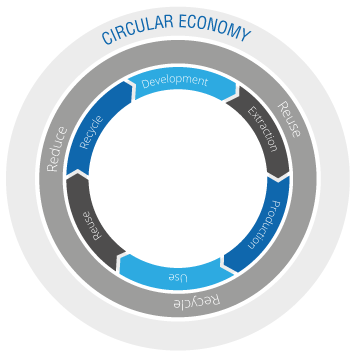Guidelines
CSN, as a company that integrates all of its activities, has several socio-environmental and sustainability management tools to work proactively and meet the needs of its stakeholders, from the communities in which CSN is located to the players directly related to the Company’s business chain.
The main objectives of CSN’s sustainability activities are:
- The creation of sustainable values and optimization in the use of natural resources;
- The management of socio-environmental risks and control of potential impacts;
- The establishment, consolidation and exchange of good business practices related to the subject.
In 2013, Whirlpool, one of the Company‘s main customers, granted CSN the certificate for the “Steel Chain Audit and Certification Program,” the first received by the Company for its socio-environmental commitment. After inspecting and approving internal processes at the Company’s units in Arcos and the Casa da Pedra mine (MG), the multinational acknowledged that CSN is dedicated to a responsible socio-environmental management of its business at all stages, from the extraction of raw materials to the manufacturing of steel. Whirlpool also considered and evaluated other risks pertinent to the industry, such as child or forced labor and questions related to human rights.
Circular Economy
CSN is constantly searching for innovations to face the challenges that have an impact on the various sectors of its activity. Among these trends, a concept that stands out is the notion of Circular Economy, which is increasingly becoming an alternative to the traditional production model. “Extract, transform, consume, and discard” has been, so far, the mindset adopted in contemporary production processes. By reusing and reappraising the materials that support the supply of goods and services, the Circular Economy aims for a reduction in socio-environmental damage and a change in the logic of organizational production.
The Circular Economy is a development cycle that preserves and enhances natural capital, optimizes resource production, and minimizes systemic risks. Beyond the opportunity for innovation it represents, the occasion promotes both the dissemination of knowledge and company initiatives to reduce operational costs, thereby improving sustainability and producing new market opportunities. There is a nucleus of Brazilian companies that, under the coordination of the Ellen MacArthur Foundation, is contributing to research and the understanding of global circular economy practices.

 Contraste
Contraste